3月15日,清华大学的游科友教授应邀来校参观了智能无人系统实验室,并给实验室师生带来了一场精彩的专题学术讲座。游教授目前主要关注于数据驱动的控制系统设计。他在控制理论领域的研究工作给我们实验室提供了宝贵的学术启发。
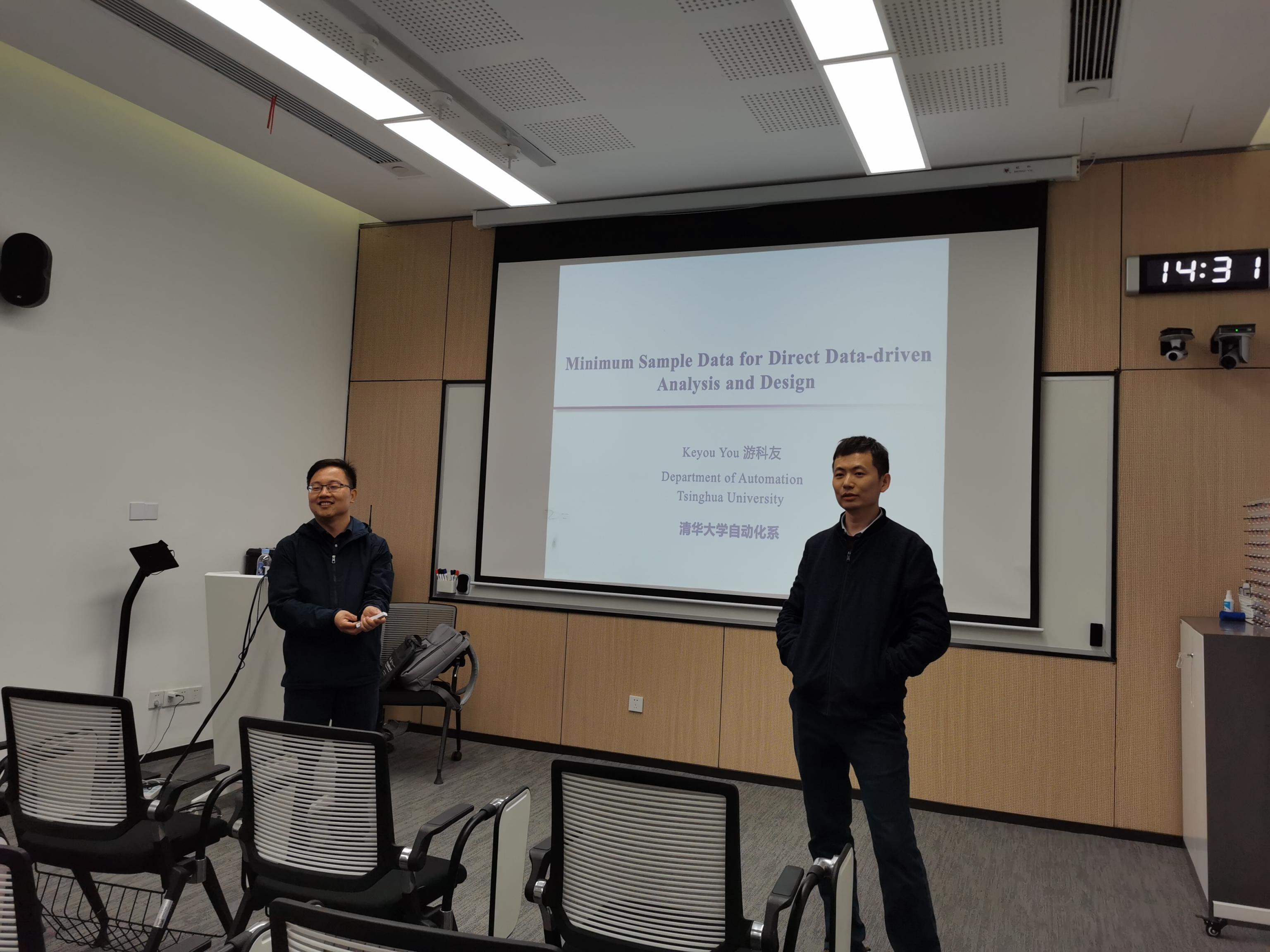
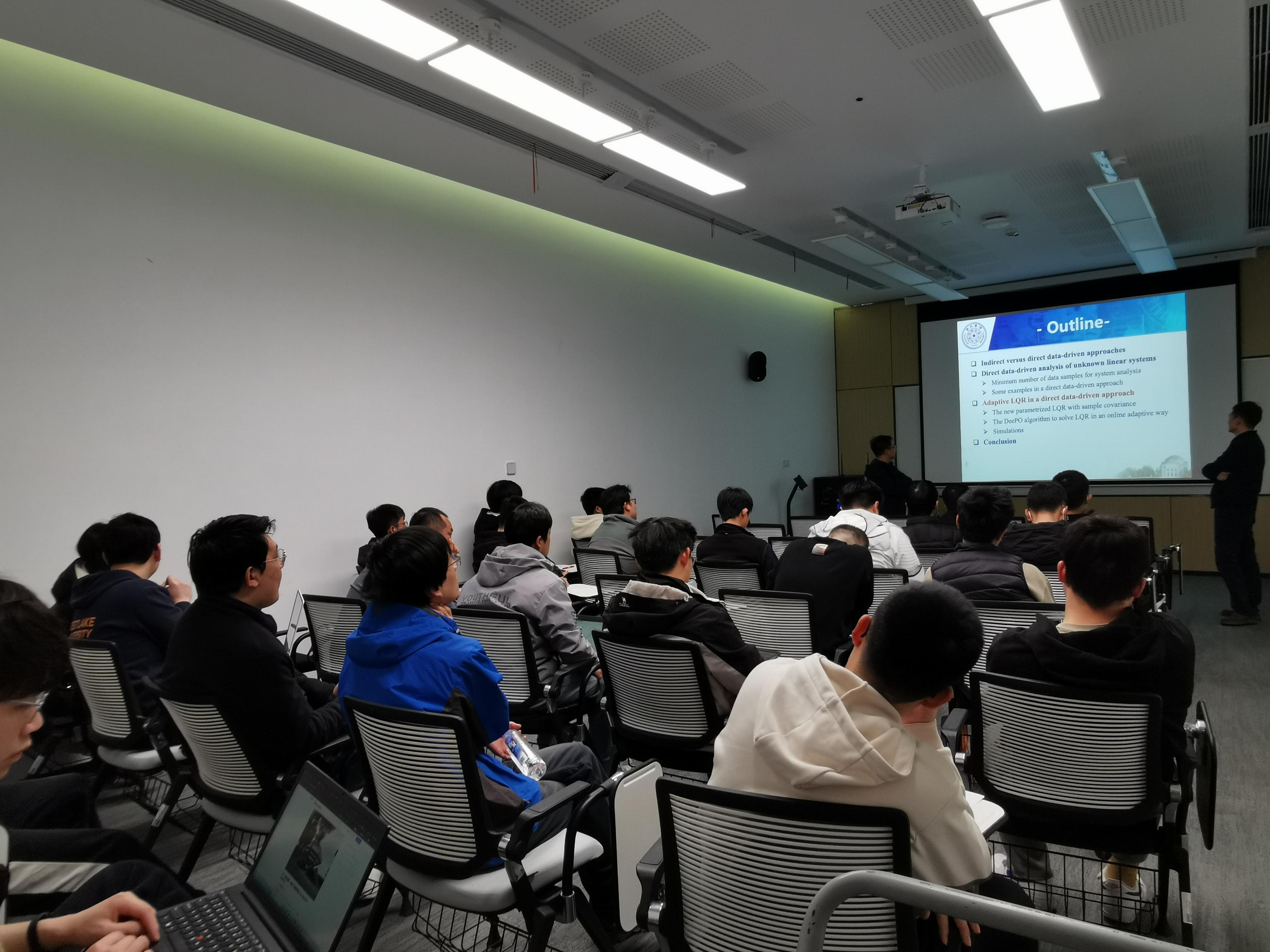
图1 讲座开场介绍环节 图2 讲座现场的师生
在这次讲座中,游教授向我们生动地介绍了如何设计闭环的数据驱动控制器来实现系统稳定。游科友教授从最基本的例子开始,一步步逐渐深入,完整地向我们介绍了这个方向的研究成果。他表示这样的方法能够有效地利用数据,并且能够在运行过程中持续地优化系统性能。
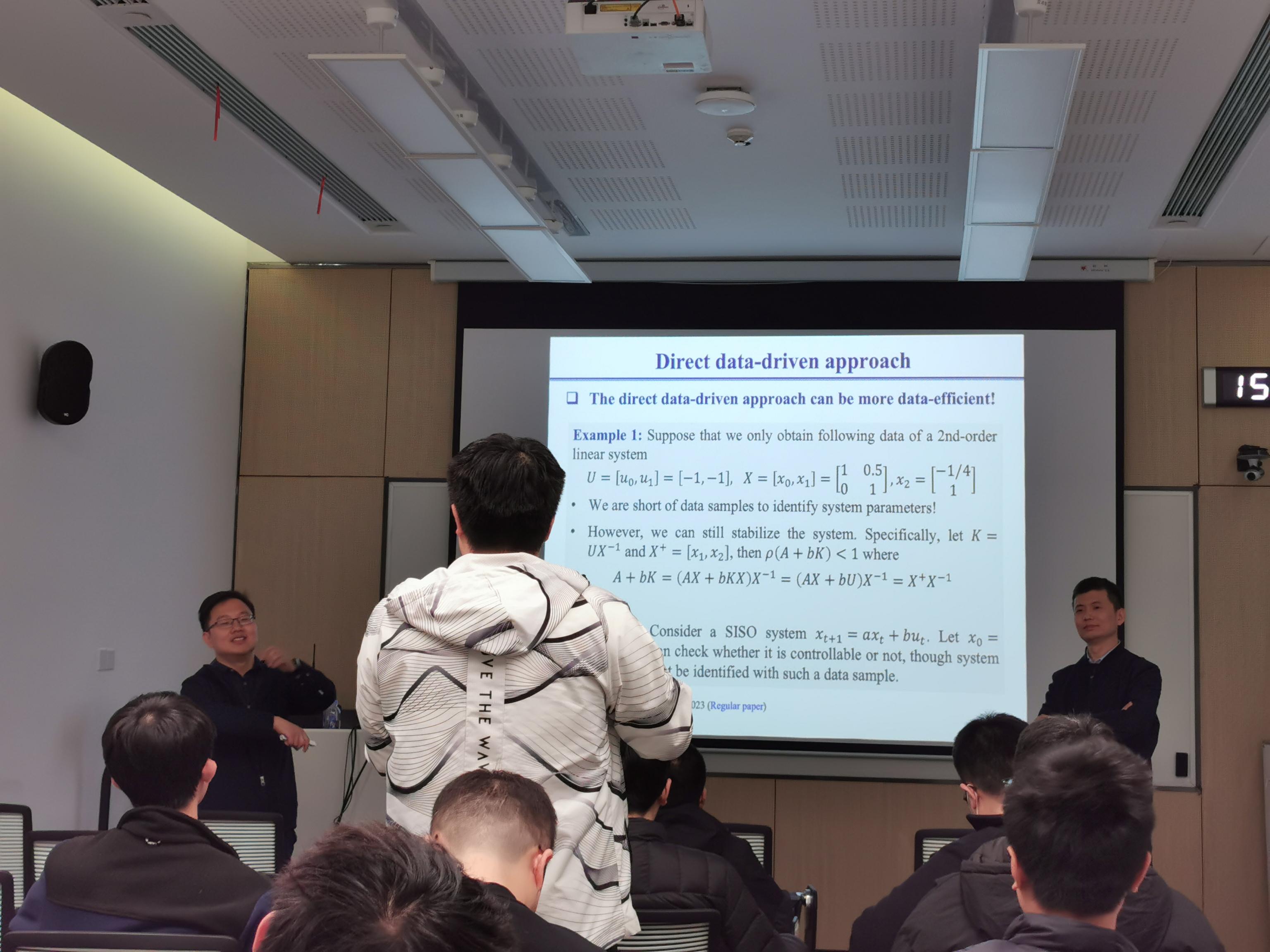
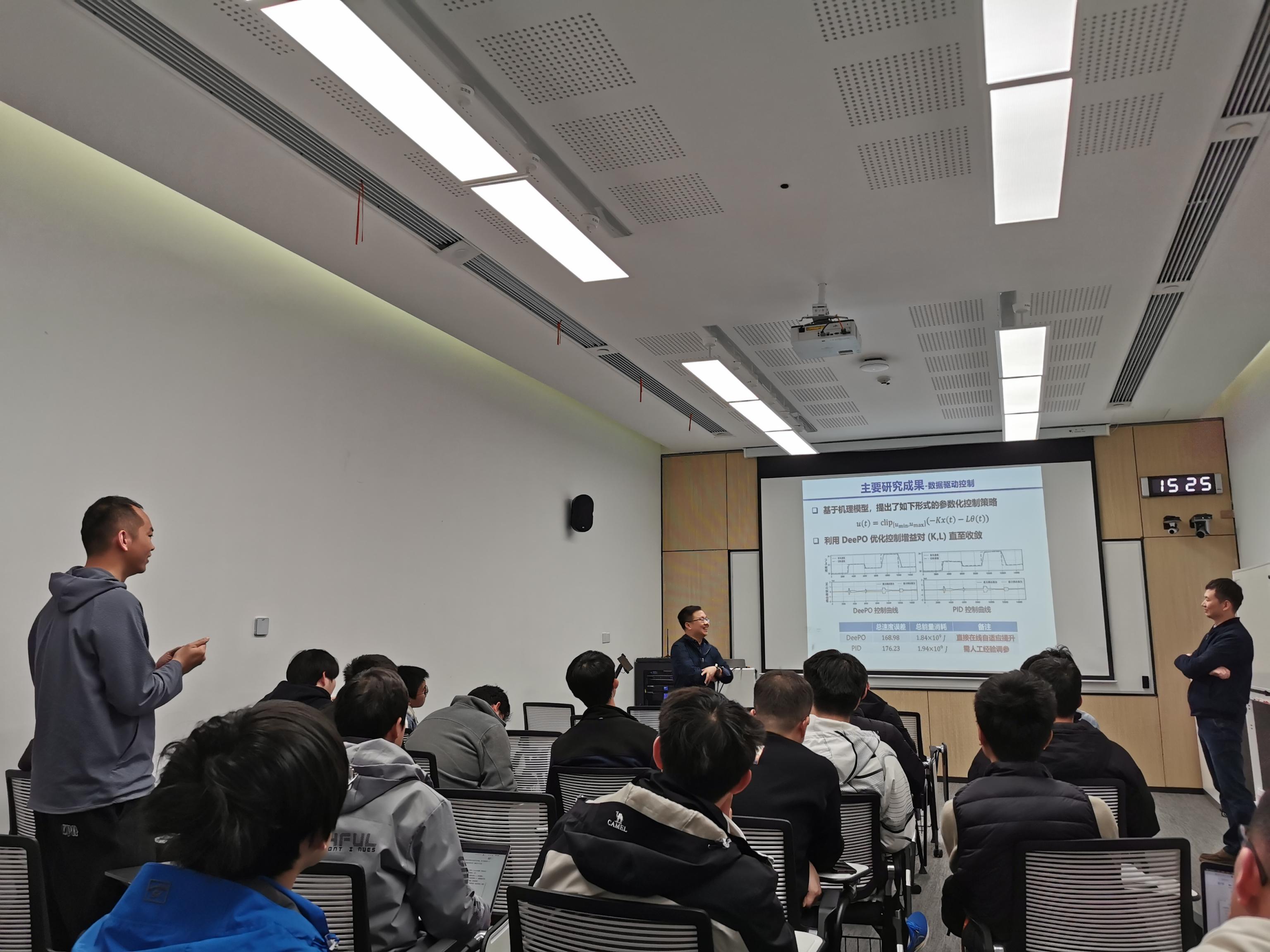
图3 米同学的问答环节 图4 汪博士的问答环节
通过与游教授的互动和讨论,我们不仅扩展了自己的专业知识,还汲取了宝贵的学术经验。这次交流不仅加深了我们对智能无人系统领域的理解,也为我们未来的研究和创新工作提供了新的思路和方向。我们由衷感谢游科友教授的到访,并期待未来更多的学术交流和合作机会。
讲座信息如下:
时间:2024年3月15日(周五)下午2:30-4:00
Time: 2:30pm-4:00pm, Friday, March 4, 2024
地点:云谷校区E10-305
Venue: E10-305, Yungu Campus
主持人: 工学院 赵世钰 博士
Host: Dr. Shiyu Zhao, School of Engineering
语言:英文
Language: English
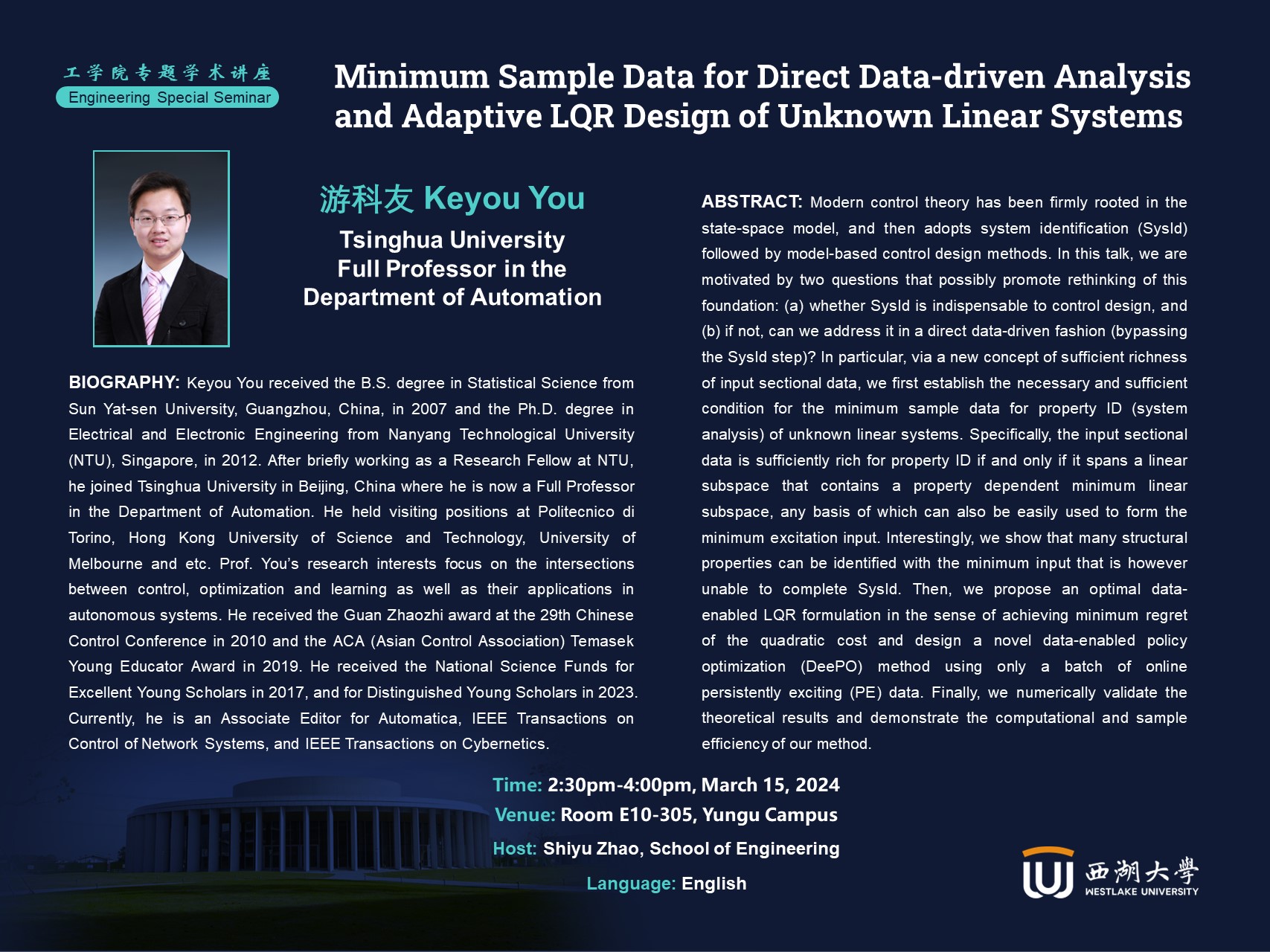
主讲人简介/Biography:
Keyou You received the B.S. degree in Statistical Science from Sun Yat-sen University, Guangzhou, China, in 2007 and the Ph.D. degree in Electrical and Electronic Engineering from Nanyang Technological University (NTU), Singapore, in 2012. After briefly working as a Research Fellow at NTU, he joined Tsinghua University in Beijing, China where he is now a Full Professor in the Department of Automation. He held visiting positions at Politecnico di Torino, Hong Kong University of Science and Technology, University of Melbourne and etc.
Prof. You’s research interests focus on the intersections between control, optimization and learning as well as their applications in autonomous systems. He received the Guan Zhaozhi award at the 29th Chinese Control Conference in 2010 and the ACA (Asian Control Association) Temasek Young Educator Award in 2019. He received the National Science Funds for Excellent Young Scholars in 2017, and for Distinguished Young Scholars in 2023. Currently, he is an Associate Editor for Automatica, IEEE Transactions on Control of Network Systems, and IEEE Transactions on Cybernetics.
讲座摘要/Abstract:
Modern control theory has been firmly rooted in the state-space model, and then adopts system identification (SysId) followed by model-based control design methods. In this talk, we are motivated by two questions that possibly promote rethinking of this foundation: (a) whether SysId is indispensable to control design, and (b) if not, can we address it in a direct data-driven fashion (bypassing the SysId step)? In particular, via a new concept of sufficient richness of input sectional data, we first establish the necessary and sufficient condition for the minimum sample data for property ID (system analysis) of unknown linear systems. Specifically, the input sectional data is sufficiently rich for property ID if and only if it spans a linear subspace that contains a property dependent minimum linear subspace, any basis of which can also be easily used to form the minimum excitation input. Interestingly, we show that many structural properties can be identified with the minimum input that is however unable to complete SysId. Then, we propose an optimal data-enabled LQR formulation in the sense of achieving minimum regret of the quadratic cost, and design a novel data-enabled policy optimization (DeePO) method using only a batch of online persistently exciting (PE) data. Finally, we numerically validate the theoretical results and demonstrate the computational and sample efficiency of our method.
西湖大学官网信息:https://engineering.westlake.edu.cn/NewsEvents/RecentEvents/202403/t20240313_37796.shtml